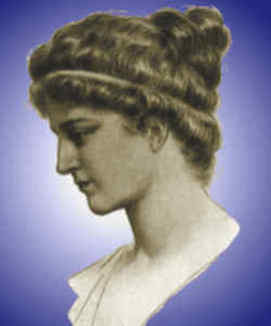 Yoon Joung Lee Hypatia of Alexandria was born into the mathematician and astronomer, Theon Alexsandricus, who was devoted to divination and astrology. During her childhood, her father tried to make her a perfect human and he raised her in an environment of thought. While her father taught his daughter his own knowledge and passion in the search for answers to the unknown, they formed a strong bond and he significantly influenced the way she looked at the world. As she grew older, her passion and enthusiasm for mathematics and the sciences also grew. She lead the Platonist School of Alexandria, teaching Philosophy and Astronomy. Her father, Theon, taught her how to make not only a highly functional mind but also a healthy body. He taught her the different religions of the world and helped her to distinguish their difference. He also mainly taught her the fundamentals of teaching and the power of words that influence people. She later became a popular teacher and orator; and people from various far away areas came all the way to listen to her teaching. She was respected by many officials in the city including the Prefect of Alexandria, Orestes. He often asked for her counsel on administrative affairs. Orestes had a tension with the Partriarch Cyril, the Bishop of St. Mark, who had a mission to bring Christianity to Alexandria and to get rid of pagans and Jews from the city. One day, Orestes tortured one of the loyal supporters of Cyril, Hierax, in public because Hierax caused an uproar where many Jews and Christians congregated and presented. Cyril got very angry after he heard of this and the tension between Orestes and Cyril rose. Cyril made efforts to reconcile his differences with Orestes, but failed. Then Cyril begun to blame Hypatia for the failure of reconcile and started to spread a rumor that she was the cause of strained relations between the bishop and the prefect. In 415 during Lent, on her way home, a Christian mob attacked her. They stripped her naked and dragged her through the streets in front of the Christianised Caesareum church where they killed her. After her death, the bishop covered up her murder by his Christian followers and told people that she had moved to Athens. Hypatia’s life ended with this brutal murder, but many of her outstanding works remained. Her extraordinary impact on women in her time was an amazing accomplishment. Many considered her a woman with great knowledge, a most famous female scientist and excellent teacher. Comments are closed.
|
Archives
July 2017
Categories
All
|
 RSS Feed
RSS Feed